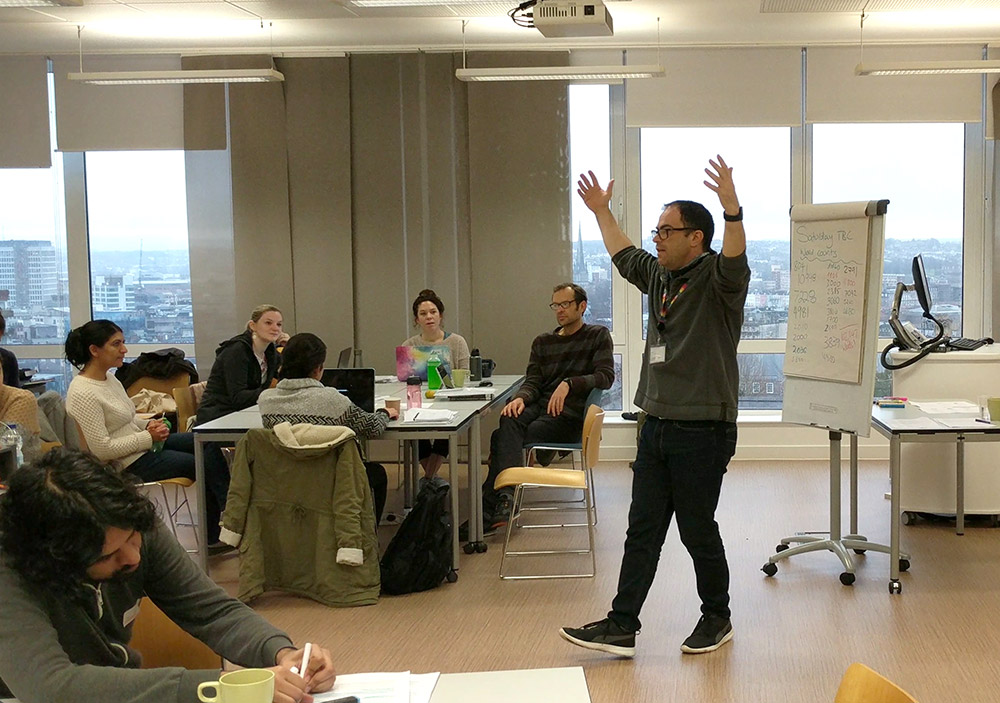Writing is a universal experience for all research students. Whether you’re researching rats in Argentina or counting conjunctions in Classical texts, at some point your findings will need to be written up into a dissertation. Add to that the need to draft conference papers, journal articles, and grant applications, and a month focusing on writing seemed like a great idea.
This is the first time Bristol has been involved in WriteFest and we therefore initially had quite modest goals: to write 100,000 words over the course of the month. However, with Thesis Boot Camp as part of our WriteFest activities, we soon smashed that figure, writing a whopping 263, 343 words over 2 and a half days! This required us to re-evaluate and institute a #stretchgoal of 500,000 words! The final figures reveal that we actually wrote 349,229 over the course of 30 days, which is an astounding figure!
But it wasn’t all about the numbers. Our focus during WriteFest has been to develop healthy, professional writing habits. We featured three videos, each with three top tips of how to write productively.
Sarah Green, a part-time PGR student in History, offered some great advice about writing regularly, even if you can only squeeze in fifteen minutes a day:
Our PG Researcher Development Officer, Loriel Anderson, emphasised the need to schedule your writing sessions and the importance of taking breaks:
And Mike Gulliver, Research Staff Development Officer with Bristol Clear, spoke about writing in small chunks and working out what time of day you are most productive:
Through social media we shared several tools to help motivate and encourage our researchers to reach their personal writing targets, including highlighting how the Hemingway app can help to craft more precise prose, and how The Most Dangerous Writing App can provide a little extra pressure to keep writing! We even shared how to block out distractions through social-media blocking apps Freedom.to and StayFocusd.
Hopefully the use of these apps didn’t prevent you from taking part in our #writekindofmusic competition, which encouraged our researchers to share their writing playlists. Lisa Morgans, a researcher in Veterinary Sciences, won a £10 Rough Trade voucher for sharing her favourite instrumental and world music, including Songhoy Blues.
It is no coincidence that Self Care Week fell in the middle of WriteFest. A focus on word counts and competitions can make some people feel as though the only way to write well is to write all the time. However, we tried to stress the importance of taking care of oneself and the value of a well-earned break. We featured tips from the PGR community of how we can take care of ourselves, from practising yoga to finding a bit of peace and quiet each day. Simple, healthy habits to implement every day. Throughout November there were also opportunities for our researchers to meet some of the new Student Wellbeing Advisers, and to attend sessions with Bristol Wellbeing Therapies. We also hosted relaxation afternoons in the Hub, featuring free tea, coffee and board games. Finally, we explored the value of ‘making and connecting’ in our #crafternoon.
Throughout WriteFest we’ve learned the power of writing together – either physically, in our Writers’ Retreats and drop-in writing days, or virtually, by sharing our writing goals and holding one another accountable for our achievements. There’s something quite profound about knowing that by writing alongside others you can achieve more than you ever could working alone.






